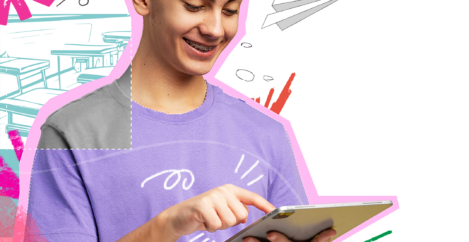September 16, 2024
Graduates don’t offer employers enough creativity in the workplace
 A new report claims that UK graduates are falling short when it comes to offering organisations the creativity they need in the workplace. The poll from Canva of around 1,000 recent university graduates, educators, and hiring managers in the UK, suggests that over three quarters (77 percent) of graduates and 66 percent of hiring managers consider creativity essential for landing a job and succeeding in the workplace.
A new report claims that UK graduates are falling short when it comes to offering organisations the creativity they need in the workplace. The poll from Canva of around 1,000 recent university graduates, educators, and hiring managers in the UK, suggests that over three quarters (77 percent) of graduates and 66 percent of hiring managers consider creativity essential for landing a job and succeeding in the workplace.
Despite this, there is a significant skills gap, with almost three-quarters (74 percent) of graduates feeling prepared for the workforce, yet only 40 percent of educators and 52 percent of hiring managers agree about their readiness.
The report says that there is a critical need to rethink how students are equipped for their future careers. Creativity is emerging as a crucial skill, on par with traditional STEM subjects, yet it often lacks the attention it deserves in current educational curricula. The report calls for a shift in educational focus to better prepare students from primary school through higher education for the demands of a rapidly evolving job market.
Key findings from the Report:
Creativity is an increasingly valued and in-demand skill
- Over three quarters (77 percent) of recent graduates view creativity as essential for securing a job, and believe it is crucial for success in their current job roles
- They also rank it as the most useful skill they learned in university, and over half (56 percent) wish they had developed stronger creativity skills during their university education
- 66 percent of hiring managers place high importance on creativity when making hiring decisions. Creativity ranks among the top three sought-after skills among hiring managers (53 percent), along with problem-solving (63 percent) and communication (63 percent)
There’s a significant gap between graduate confidence and employer expectations
- While 64 percent of recent graduates feel that their higher education prepared them very well for the workforce, only 34 percent of educators and 44 percent of hiring managers share this view. This gap highlights a need for better alignment between educational outcomes and the skills employers are looking for.
Despite the agreed importance of creativity, educators face challenges when integrating creativity into their teaching
- 80 percent of educators, 84 percent of hiring managers, and almost all (94 percent) of recent graduates agree that creativity will become a bigger focus in education
- However, educators cite lack of time (38 percent), lack of curriculum support (37 percent), and inadequate funding and resources (38 percent) as major obstacles in impeding this goal. These challenges are impacting efforts to provide students with more opportunities to develop creative skills
As AI continues to transform the job market, the need for human creativity is more important than ever
- 79 percent of recent graduates and 71 percent of hiring managers think creativity will become even more crucial as technology evolves; 69 percent of graduates and 56 percent of hiring managers see AI as an enabler for creativity
- The majority (88 percent) of recent graduates are also more likely than educators (68 percent) and hiring managers (78 percent) to think that the rise of technology and AI will likely encourage more creative thinking, as technology cannot fully replicate the innovative problem-solving that human creativity drives
















